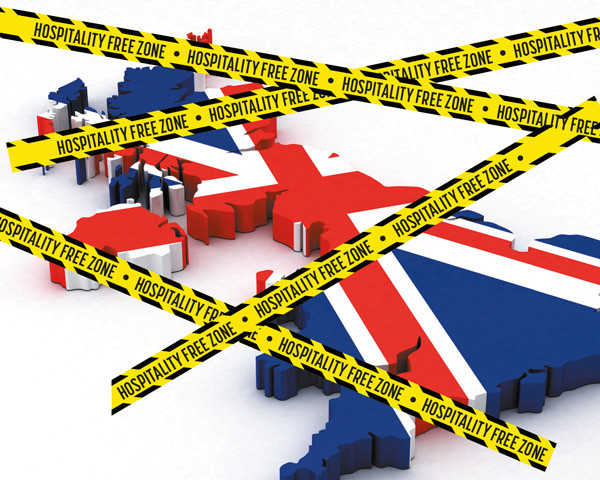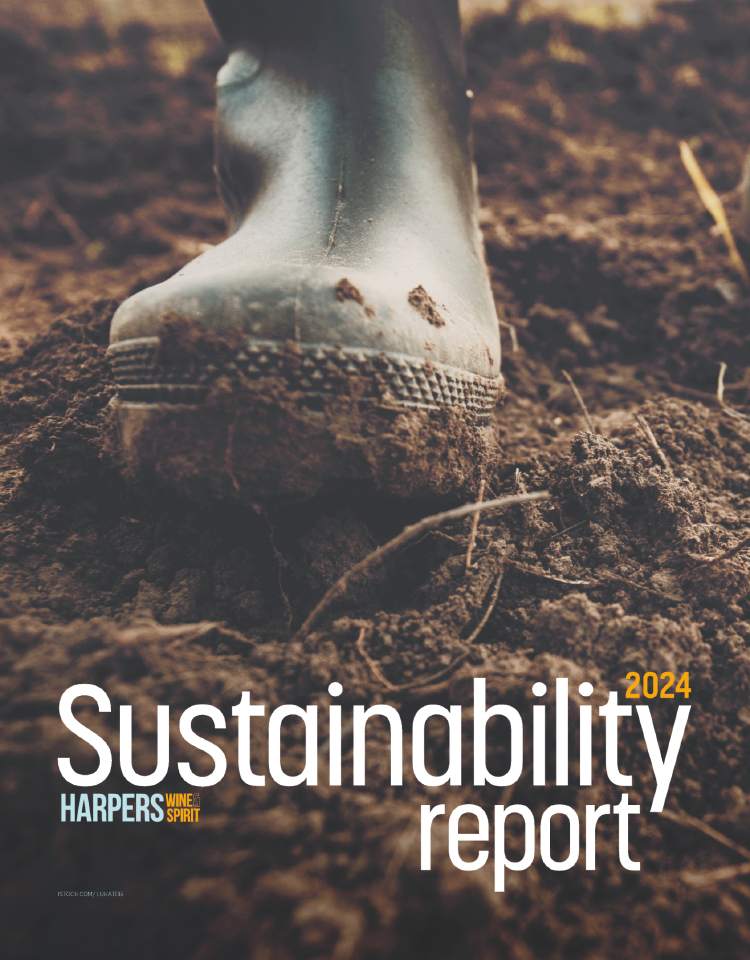
Staffing crisis: Low skilled judgement
The government’s damaging immigration policy will further exacerbate the staffing crisis in an already beleagured on-trade. Chris Losh takes aim...
On a storm-tossed day at the end of February, Gerard Basset’s autobiography, Tasting Victory, landed on my doormat. It’s a warm, wry, inspiring tale of a rather directionless young man who arrived in the UK 40 years ago with not much more than a St Etienne scarf, and went on to become one of the undisputed greats of the restaurant and wine world.
In his time here, Basset inspired and trained dozens of sommeliers, helped found the Hotel du Vin chain, and accumulated qualifications and awards the way some people acquire garden furniture. Competing under the Union Flag all round the globe, he immeasurably raised the reputation of wine and hospitality on this side of the channel, receiving an OBE for his efforts in the 2011 Birthday Honours list.
So it’s sobering to think that under the government’s new immigration rules this story would not have happened. With no qualifications, no job and negligible English, the 22-year-old Basset would no longer be allowed in.
The clock is ticking on freedom of movement within the EU, with the government introducing a points-based system, designed to prioritise “high-skilled” labour over “low-skilled”. There will be no cap on the former from anywhere in the world, but as of 2021 low-skilled workers will find it much harder to obtain a work visa.
Brexit-voting Brits and pro-government media welcomed the move with open arms when it was announced last month, heralding it as a sign of the country’s much-vaunted intention to take back control of its borders.
For the government, it’s a crackdown on what they see as a suffocating blanket of low-skilled immigrants suppressing wage levels and keeping Brits out of a job. It’s a way, they say, of encouraging businesses to “move away from cheap labour”.
But such idealism is likely to play out far less well in the real world – at least, for the on-trade. In fact, if you’re a fan of eating or drinking out you’d be advised to make the most of the next nine months, because by this time next year the golden age the UK hospitality world has enjoyed more or less since the millennium could be a distant dream.
↓
On-trade panic
News of the new migration landscape saw bars, hotels and restaurants flooding social media, websites and phone-ins with dire warnings of rising prices, staff shortages and closures.
Under the new system applicants to come and work in the UK (from Europe or elsewhere) will need to fulfil sufficient criteria to get to 70 points on the government’s migrant scorecard.
Applicants score 20 points for a job offer, a salary of over £25K, a job “at the appropriate skill level”, or one that’s in a “shortage occupation”; 10 points for speaking English or earning £23-25K.
From hospitality only experienced chefs are included as a “shortage occupation”. So go through the categories above and it’s instantly clear just how hard it will be for anyone beyond a top pan-slinger to get in. And even then they’d need to have plenty of experience, a job offer and good English.
Judged by these criteria, the young Gerard Basset would have scored precisely zero. He went on to become a Master of Wine, a Master Sommelier, World’s Best Sommelier and was awarded an OBE. But I’m sure he’d have enjoyed being lectured on the need to keep out low-skilled workers by someone as patently inept as Priti Patel.
On Twitter, the normally mild-mannered Fred Sirieix described the new policy as “morally bankrupt and flawed… totally devoid of virtue and economic benefits”. Hawksmoor’s Will Beckett warned of job losses “up and down the supply chain”.
And whatever your thoughts on Brexit and border policing, the potentially devastating impact of this policy to hospitality suggests a rethink is in order.
The on-trade is already in the middle of a staffing crisis. Kate Nicholls, chief executive of UK Hospitality, reckons that, even with free EU movement, some 128,000 jobs are currently unfilled in hospitality. “We simply don’t have enough people in the labour market,” she says. “We’re running out of people.”
Turning off access to “low-skilled” workers at a time of shortage is like tying weights to the feet of a drowning man. As workers leave and replacements are not found, venues will enter a classic business death-spiral: first overloading their remaining staff, then trimming opening hours and finally closing altogether. There will be less choice, higher prices and worse customer service.
For a government supposedly steering the country into a glorious post-EU future, killing one of the few UK industries in growth would be a PR disaster, but that’s no guarantee that they’ll act. Immigration is an emotive issue so the government might stick to their existing tough line, while bars, restaurants and hotels close around them, sacrifices in a battle between ideology and common sense.
Keywords:
- wine
- On-Trade
- Brexit
- trade
- staffing
- Government
- drink
- policy
- immigration
- staff crisis
- low skilled
- Chris Losh







